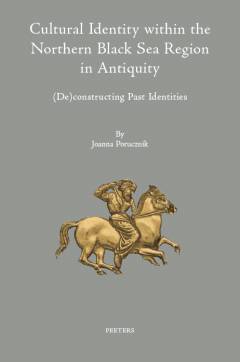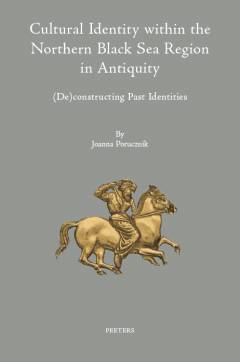
- Retrait gratuit dans votre magasin Club
- 7.000.000 titres dans notre catalogue
- Payer en toute sécurité
- Toujours un magasin près de chez vous
- Retrait gratuit dans votre magasin Club
- 7.000.0000 titres dans notre catalogue
- Payer en toute sécurité
- Toujours un magasin près de chez vous
Cultural Identity Within the Northern Black Sea Region in Antiquity
(De)Constructing Past Identities
J Porucznik
172,95 €
+ 345 points
Description
The book examines the cultural identity of the northern Black Sea poleis. The broad chronological perspective used explains the complex process of the creation of local identities in Greek apoikiai, examined by a thorough analysis of the self-definition of the citizens. As the book shows, the self-definition of Black Sea poleis was expressed through local myths and cults, the connection to a wider Panhellenic tradition and the relationship with the local 'Others', whose imaginary view was an integral part of the Greek 'barbarian repertoire' that was used creatively in Greek literature, poetry, theatre and art. This study deconstructs out-dated approaches that are based on the culture-history tradition, according to which an ethnos is a stable and continuous unit that can be described by clear ethnic markers visible in the archaeological material, offering instead a new approach to the study of multicultural encounters in the North Pontic region, one that pays attention to flexibility and the situational nature of ethnic groups and their boundaries. The picture of North Pontic society that emerges is more complex and multi-layered than in many previous studies. The hybrid nature of this society allowed for the creation of local collective identities that were based on dynamic interaction, conscious strategies and investment in mutual benefits by the members of the 'collective'. The book integrates a significant amount of material published by Eastern European archaeologists, classicists and historians that is not readily available to non-Russian speaking Western European scholarship. A wide range of material for researching ancient societies, literary, epigraphic, numismatic and archaeological, has been incorporated into the study.
Spécifications
Parties prenantes
- Auteur(s) :
- Editeur:
Contenu
- Nombre de pages :
- 243
- Langue:
- Anglais
- Collection :
- Tome:
- n° 31
Caractéristiques
- EAN:
- 9789042944237
- Date de parution :
- 13-10-21
- Format:
- Livre relié
- Format numérique:
- Genaaid
- Poids :
- 10468 g

Les avis
Nous publions uniquement les avis qui respectent les conditions requises. Consultez nos conditions pour les avis.






